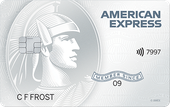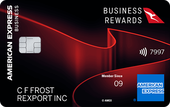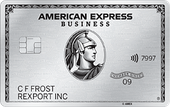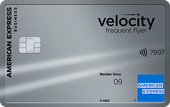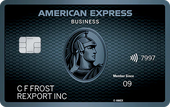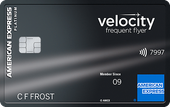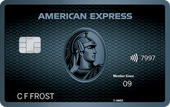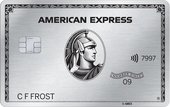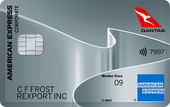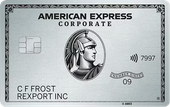
What is a sign-up bonus credit card?
A sign-up bonus credit card is a type of rewards credit card that offers new cardholders a one-time bonus for meeting specific spending requirements within a set period after approval. These bonuses often come in the form of bonus reward points or frequent flyer points, but some cards may also offer additional cashback or gift cards that are redeemable at specific retailers or airlines.

How sign-up bonus credit cards work
Some rewards credit cards offer generous bonus points to users when they sign up as new cardholders. At the time of writing, you can find credit cards offering between 50,000 and 250,000 bonus points upon sign-up, depending on the card you choose.
A sign-up bonus credit card can be a great way to significantly boost your rewards points. If you’re a frequent flyer, the bonus points could be enough to redeem a flight to your favourite destination. In particular, frequent flyer credit cards with high sign-up bonuses can help you earn points faster, making it easier to book flights, upgrades, or other travel perks. However, earning these bonus points isn’t as simple as just signing up. There are usually additional conditions to meet.
Sign-up bonus credit cards typically require cardholders to spend a certain amount of money on the card within a specified period, usually the first few months after opening the account. Once the spending threshold has been met, the cardholder becomes eligible to receive the sign-up bonus.
It's essential to carefully read and understand the terms and conditions of sign-up bonus credit cards to ensure you meet the eligibility requirements for the rewards. Some card providers offer these deals for a limited time, so if you're interested in a particular offer, be sure to check when the offer ends and any specific conditions before applying.

Expert opinion
How credit card sign-up bonus offers have changed in Australia

Credit card sign-up bonuses have changed considerably over the years. As David Boyd, co-founder of Credit Card Compare, shares his thoughts on the merits of credit card bonus offers and how they've changed :
"Sign-up bonuses have changed considerably over the years since we started Credit Card Compare. It used to be that a sign-up bonus could be triggered simply by applying and getting approved. Those days are long gone now, with banks typically requiring a certain amount of spend over a specified period of time before paying out.
They're still one of the fastest ways to rank up a lot of points, but you do need to be careful. Avoid chasing spending targets and buying things you don't need."

Benefits of sign-up bonus credit cards
- Earn reward points. Sign-up bonus credit cards allow cardholders to earn bonus points that can be redeemed for rewards such as frequent flyer miles and points with popular programs like Qantas Points or Velocity Points, merchandise, gift cards, or cashback.
- Cashback offers. Some sign-up bonus credit cards offer cashback rewards, giving cardholders a percentage of their purchases back in the form of statement credits or actual cash.
- Introductory 0% APR. Some sign-up bonus credit cards come with an introductory 0% p.a on purchases or balance transfers, allowing cardholders to save on interest charges.
- Complimentary travel benefits. Certain sign-up bonus credit cards offer additional travel perks such as airport lounge access, travel insurance, or airline fee credits.
- Waived annual fees. In some cases, sign-up bonus credit cards may waive the annual fee for the first year, providing cardholders with a cost-saving benefit.

How to choose the best sign-up bonus credit card that suits you
When selecting a sign-up bonus credit card, consider the following factors:
- Bonus offer. Assess the value of the sign-up bonus, including the number of points offered or the cashback percentage.
- Minimum spend requirement. Determine whether you can comfortably meet the required spending threshold to qualify for the sign-up bonus.
- Rewards structure. Evaluate the ongoing rewards program of the credit card to ensure it aligns with your spending habits and preferences.
- Annual fees. Consider the credit card's annual fee and whether any waived fees are temporary or ongoing.
- Additional benefits. Review any supplementary benefits such as travel perks, purchase protection, or concierge services offered by the credit card. These offer value to you only if you plan to use these perks.

Is it worth getting a sign-up bonus credit card?
A sign-up bonus credit card can be a great way to earn extra rewards, but whether it’s worth it depends on several factors. The biggest advantage of a sign-up bonus is the ability to quickly accumulate points, cashback, or vouchers, often giving you enough for flights, hotel stays, or significant savings on purchases. These rewards can provide excellent value for frequent travellers or those who regularly use credit cards for their spending.
However, many rewards credit cards come with high annual fees, which can sometimes outweigh the benefits. If the fee is substantial and the rewards don’t align with your spending habits, you may end up paying more than you gain. While some cards offer reduced or zero annual fees, these promotions are often limited to the first year, so checking what fees will apply once the introductory period ends is important.
In general, to truly benefit from credit card rewards, it’s essential to choose a card that matches your lifestyle and fits within your budget. You can also keep an eye out for cards with the biggest sign-up offers but ensure you meet the conditions required to earn these points.
Some people take advantage of card churning, a strategy where they open multiple credit cards to earn sign-up bonuses and then cancel them after receiving the rewards. Churning can be an effective way to rack up large amounts of points quickly. However, it comes with some risks.
Repeatedly opening and closing credit accounts can impact your credit score, especially if done too often. Additionally, some lenders may see frequent account openings as a red flag, making it harder to get approved for new credit cards or other forms of credit in the future.
Ultimately, a sign-up bonus credit card can be worth it if the rewards outweigh the fees and align with your spending habits. If you’re considering card churning, it’s best to space out your applications and keep each card for at least a few months or a year to minimise any negative impact on your credit health in the long run.

What Australians think of sign-up bonus credit cards
Many Australians strategically apply for credit cards to take advantage of sign-up bonuses, which can include frequent flyer points, cashback, or retail vouchers. These rewards can be a great way to earn extra value from everyday spending, but it’s important to be aware of both the benefits and potential pitfalls.
One redditor highlighted how they maximise rewards without increasing their expenses:
I'm not an avid CC churner. But when a sign-up reward is good enough, I apply. 100k frequent flyer points, $500 cashback with no real change in your spending habits, etc. The spend target is easy to achieve, especially if you're tag-teaming with a partner. Just ask them to put your CC on their Apple/Samsung/Google Pay. Charge work expenses there too, then reimburse. Gifts, tuition, etc. Then when you get the reward, cancel. Free stuff, low effort. Just takes a modicum of discipline.
Some users point out that sign-up bonuses are quite generous and not too difficult to earn. One user noted:
Signup bonuses can be pretty generous and fairly easy to attain. You don't need to spend much for most of them.
However, others caution that rewards programs can influence spending habits, sometimes leading people to overspend without realising it. One user commented:
One thing that many people don’t consider is that lots of people subconsciously overspend without realising it because of the ‘rewards’,
This highlights the importance of sticking to your normal spending habits when pursuing bonus points. Credit card providers typically require you to spend a certain amount within a limited time to qualify for the bonus points. While these offers may be tempting, if the spending requirement exceeds your budget, you could end up in a cycle of costly debt.
Credit card rewards can provide excellent value, but they are only beneficial if the required spending aligns with your regular expenses.



